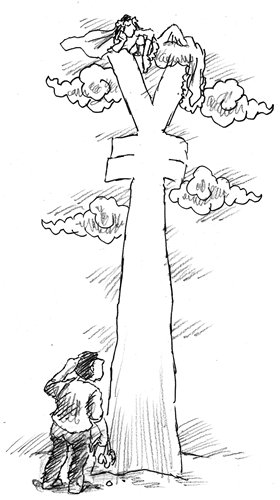
Illustration: Peter C. Espina/GT
The problem with caili besieging rural families in China should be construed not only socially but also in economic terms for possible solutions to be worked out.
Caili, or betrothal gifts, date back to the Western Zhou Dynasty (1046-771BC) as an indication of a marital bond. If the family of a bride accepted the gift from the bridegroom's family, it indicated an engagement to be married. The centuries-old tradition was initially put in place to maintain social order but gradually became legally binding.
There were already detailed rules for betrothal gifts in the Tang Dynasty (618-907), which considered a bride price as a prerequisite for marriage and that once it was accepted, however small the amount, it was civilly and criminally binding. Until the Republic of China (1912-49), the law stipulated that an engagement or marriage would be legally acknowledged only after a certificate for marriage was signed or caili was accepted.
Betrothal gifts and bride prices were denounced as a type of marriage transaction, per marriage rules unveiled in 1941 by the Jin-Cha-Ji Border Region Administrative Committee. Marriage rules and regulations released after the founding of the People's Republic of China in 1949 also prohibited betrothal gifts before caili reappeared in the country's legal framework in the form of judicial interpretation in 2003. The tradition has not died but has become increasingly monetized.
It needs to be pointed out that the long-lasting practice makes sense in economic terms. For the bride's family, the marriage generally means the loss of a labor force which is financially offset by the bride price. In the case of the groom, caili is a wealth indicator that measures his family's social status.
With caili also considered as an economic activity engaged in by the families of both the bride and the groom, it requires understanding from an economic point of view. Economic activities can't be fully reasonable and while it's necessary that economic activities fall under the purview of laws and regulations, it shouldn't be expected that all activities are legally regulated.
Along with the economy's fast growth, the caili issue has grown rapidly. A survey by China's State broadcaster showed in 2016 that caili given by the average rural family topped 100,000 yuan ($14,502), decidedly a large fortune for rural households.
Multiple factors have led to this problem, mostly seen in China's rural areas. First, the country's reform and opening-up has turned surplus rural labor into surplus value and has widened the gap between the rich and poor. Wealthy rural families took the lead in raising the amount of caili, which has inevitably driven others to follow. Second, changes in rural livelihoods have made moral rules and principles less binding. Moral rules used to keep a tight rein on rural communities when agriculture was relied on as a means of living, however, increasing labor mobility is breaking this down. Third, there are over 30 million more men than women of marriageable age in the country, which lays the groundwork for the bride's family to ask for a higher price. Fourth, the persistence of social stratification has put pressure on poor rural families who are prone to regard caili as a fate changer. Some well-off families also hope to rule out the possibility of marrying a man from a poor family by demanding sky-high caili. Fifth, a heavy reliance of young people in rural areas on their parents to afford caili to payouts for life after marriage makes the issue more severe.
That said, the issue of caili is intimately correlated to the rapid rise of the economy and the vicissitudes of the society. It needs to be addressed in terms of sociology, ethics, economics and jurisprudence.
Some of the factors contributing to the problem derive from a natural drive to compare oneself to others. This should be guided toward less competition by publicly toning down caili and enacting tougher regulations against caili-related disputes instead of stern rebukes or arbitrary bans.
Factors such as the gender imbalance and the overreliance on parents require greater government efforts. It is likely that some abnormalities could result in even worse outcomes. Imbalanced economic growth, wider rich-poor gap and persistence of social stratification could trigger unease among people and possibly cause aspects of society to wobble further. This would perhaps be a test for the country's governance capacity in a new era, which necessitates efforts to facilitate social mobility.
Only once the causes behind the betrothal gifts are identified can the deep-seated issue be addressed.
The author is chief economist with the International Cooperation Center of the National Development and Reform Commission. bizopinion@globaltimes.com.cn
